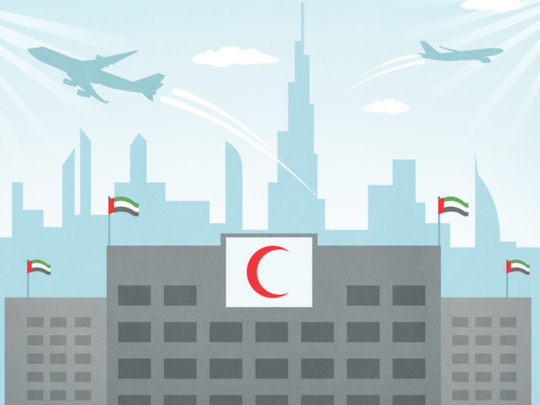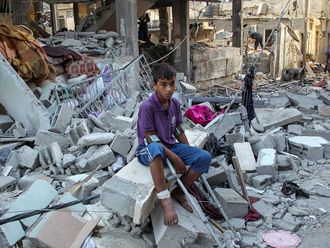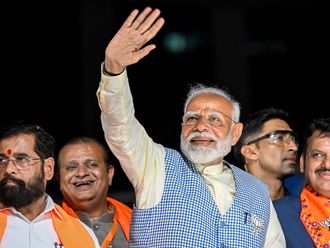
As I sat in the waiting area of a hospital in Thailand, I observed the many patients going in and out of the multi-purpose medical institution. Naturally, I assumed they were all patients seeking treatment for some kind of chronic mental or physical illness that perhaps they would rather keep to themselves.
I noticed that most of these patients were quite familiar with the hospital and its many sections, made evident by the fact that they knew exactly where to go and where to wait. It is worth noting that the hospital has both male and female translators to welcome Arab patients.
I also noticed something else: Most of the patients were from Gulf Cooperation Council (GCC) countries. By striking a conversation with some of them, I learned that they visited this hospital twice a year for various or specific diagnoses and tests for themselves or members of their family.
Sifting through a report on the 400 hospitals in Thailand, a certain statistic caught my eye. Hospitals in Thailand treated 420,000 foreigners from 190 countries during the second half of 2007 and up to 2008. I could not help but wonder how many of these patients were from the Gulf.
Sitting in the hospital’s cafeteria, I initiated a conversation with an Emirati, Omani and a Kuwaiti and I asked them why they chose to come to Thailand for treatment instead of opting for treatment back in their home countries. Their immediate reply was: “Hospitals back home are not good enough”.
Intent on learning more, I asked them why they thought medical institutions back home were not as good as those abroad. They recounted various negative experiences that they, or their friends and family, had been through in local hospitals and clinics. They said that those experiences have instilled within them a negative opinion about medical institutions in their countries — so much so, that this opinion has turned into an indubitable belief.
The reason behind this deeply ingrained belief is based on three reasons. The first is that despite the fact that many hospitals in GCC countries are equipped with advanced medical facilities, results of diagnosis, most of the time, are inaccurate. This results in doctors writing wrong prescriptions that further aggravate the condition of a patient.
The second is that the doctors lack a certain level of commitment, perhaps due to the absence of incentives or due to low recruitment criteria or because the doctors are not enrolled in annual training programmes. Some incidents of malpractice are occasionally reported by the local papers.
The third and final reason is the severe drop in quality of medical services. To further emphasise their point, the GCC patients I conversed with referred to the poor general hygiene in toilets, corridors and rooms of hospitals back home, as well as slow service when tending to patients.
It is these reasons that drive many patients from the Gulf to hospitals abroad, simply because the quality of service that they seek are absent from local hospitals.
One cannot help but wonder as to how accurate the information provided by these Gulf patients is. After all, the GCC nations are oil producing countries and are considered among the richest in the world. And these nations, as occasionally reported by many local papers, are striving to provide their citizens with a ‘leisurely lifestyle’,entailing the provision of all key necessities of life to citizens so that they can focus on achieving their dreams.
Can it be true that until this very day, these nations were not successful in ensuring good medical services to their citizens in local hospitals? And instead, these citizens had to travel to faraway countries and spend more money for good medical services?
It is perhaps cheaper to receive treatment in an Asian country instead of a European country. Meanwhile, how large are the sums of money spent by Gulf patients in hospitals abroad? Certainly a lot and the amount can only be determined by specialists in the field. Perhaps Ministries of Health in GCC nations are aware of the exact figures, but those numbers are never published in the local papers. A passing thought tells us that maybe all the money paid by GCC patients abroad can be used for the construction of a hospital that is at par with international standards and those of hospitals abroad to which GCC citizens travel to for treatment. However, is money really the problem, especially in such wealthy countries that enjoy ample liquidity?
I posed this question to a senior official. His reply was the following: We cannot build a hospital that is similar to the ones abroad. The only way a GCC hospital can ever be made possible is if we had the following: A receptionist from the Gulf, a nurse from the Gulf, a GCC doctor who specialises in everything, administrative staff from the Gulf and a GCC pharmacologist. Only then will I be able to build a GCC hospital that is at par with international standards and maybe even better.
Will this be enough to convince GCC citizens not to travel abroad for treatment? I agreed with his point of view and we also agreed on the following: That a form of mutual trust must be established. And for this to happen, a senior official should go to a local hospital for his or her routine medical examinations instead of opting to travel abroad. To lead by example. Perhaps only then will a GCC citizen have more trust in local medical institutions.
Mohammad Hassan Al Harbi is a writer and journalist.









